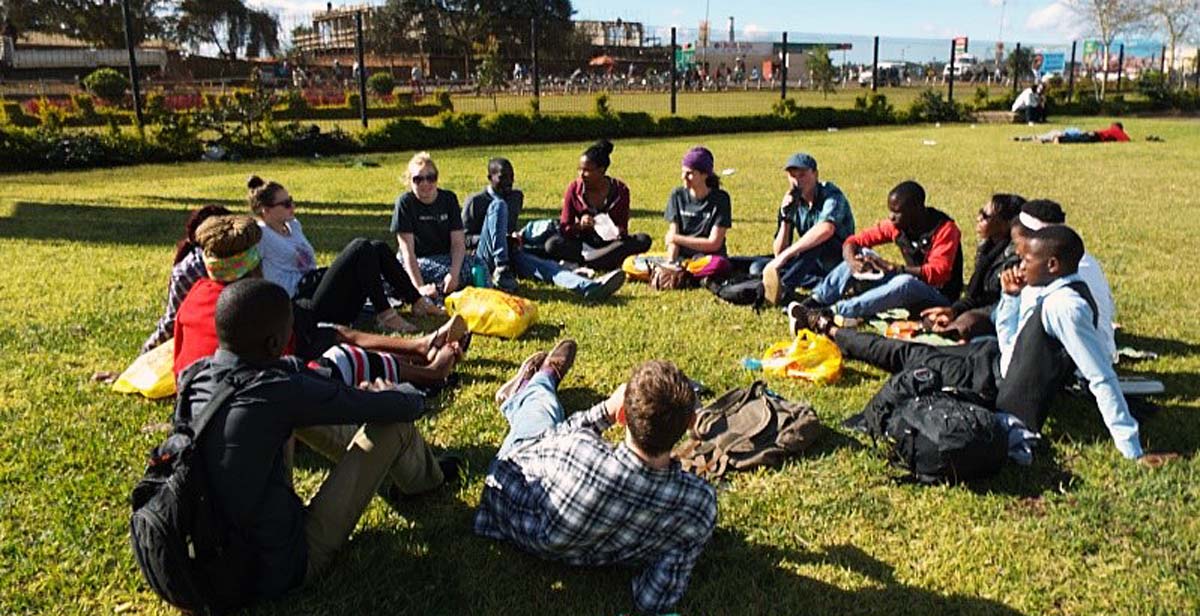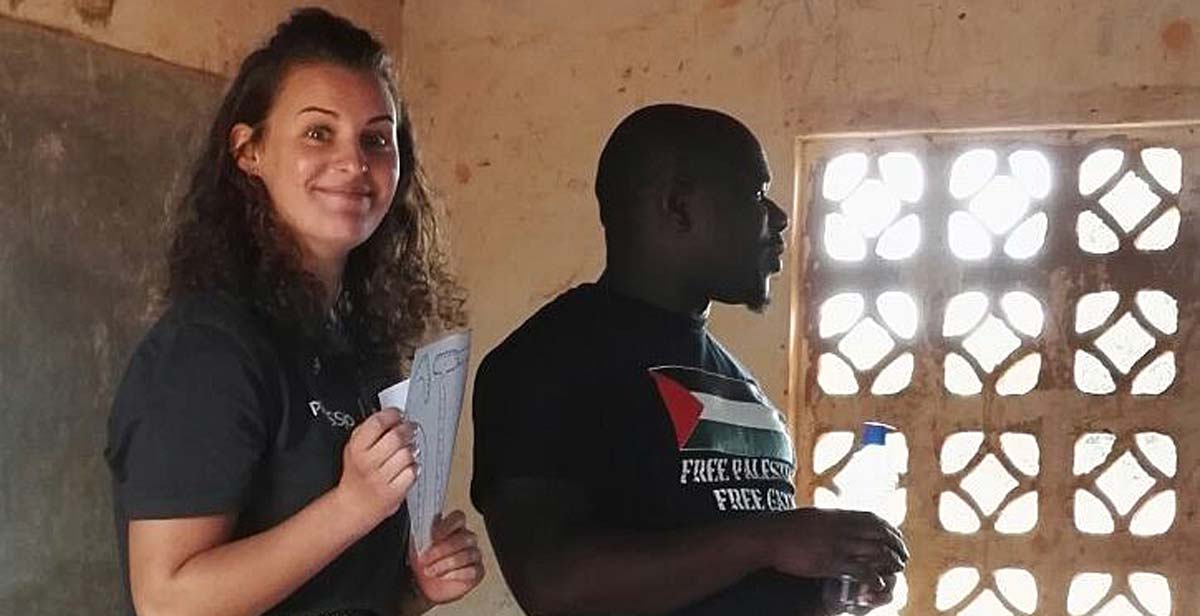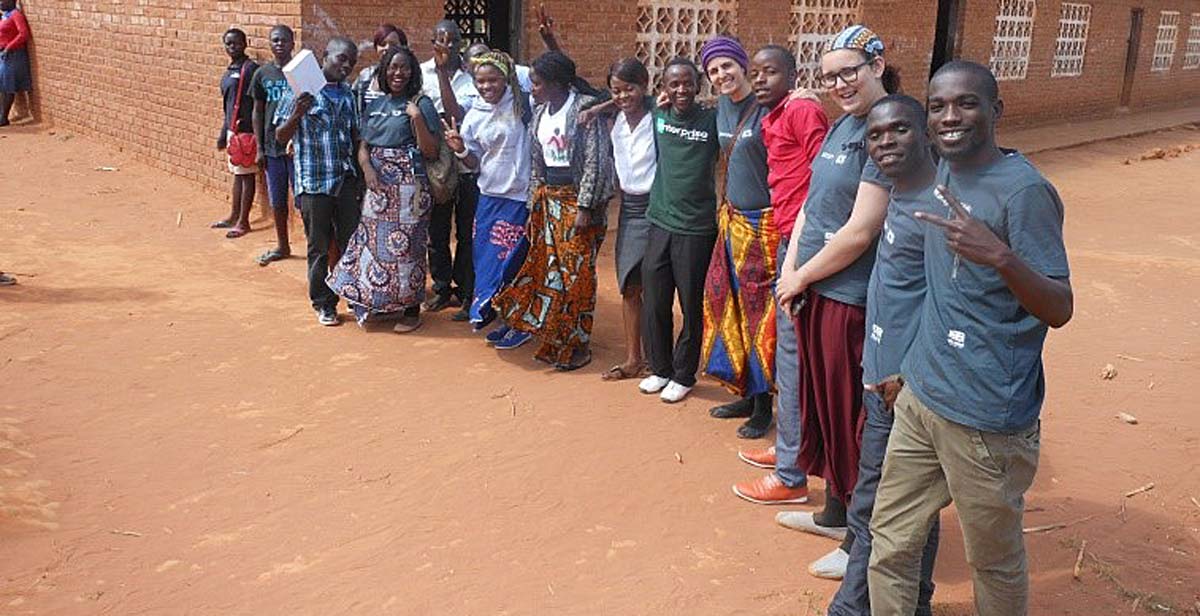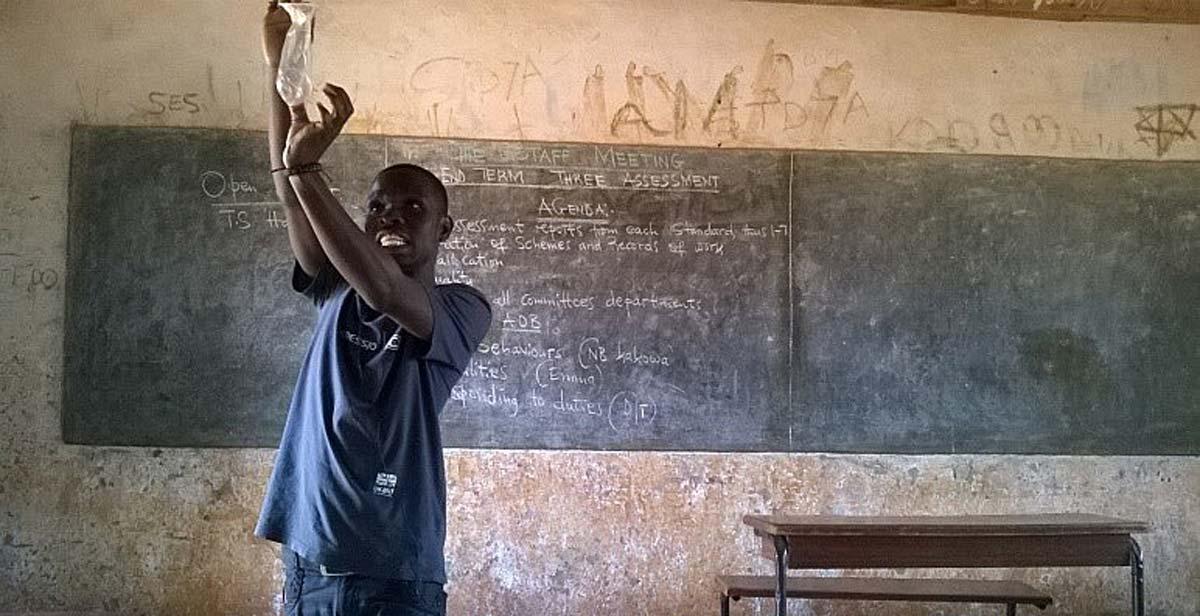We are ‘Team Tiwale’.
Or in English... ‘Let's Shine’.
Yesterday, our team had our first opportunity to live up to this name by visiting a nearby community and shedding some light on important issues pertaining to sexual and reproductive health.
The site was a youth club in Ekwendeni, a small rural neighbourhood about 20km away from where we're based in Mzuzu. The community liaison volunteers on our team had negotiated two days this week for us to go in and deliver workshops on HIV & AIDS. Our plan was to split the group into two teams, one for each day, and I was going on day one.
I was excited.
This was big.
After all our study sessions and practice runs, we were finally going to put ourselves to the test and share what we'd learned with the world beyond the Tovwirane office (our local partner organisation).
It was exactly what we were here for.
So off we went.

Volunteers having lunch together on the grass
In a routine that was becoming all too familiar, we piled ourselves into a minibus (to a capacity that would raise all kinds of eyebrows in the UK) and set off to the site. We arrived to a classroom filled with 46 people, whose ages ranged from about 10 to 25.
They introduced themselves in English and we returned the favour in Chitumbuka, before we all headed outside together to play some energizer games. We then divided into two groups, one for the younger kids, and one for the older youth (I went with the latter).
Overall, the sesions went well. There were many questions, some of which were based on interesting myths I'd never heard of before... (e.g. ‘Can you still get pregnant if you have sex in a swimming pool?’, ‘Can HIV be avoided with more foreplay?’, etc.) We answered their questions as clearly as possible, and were happy when they appeared satisfied with our answers (#mythbusters).
After returning to the office, we had the opportunity to talk about our day, and highlight some positive moments, as well as things we could do better next time.
The day was not without its challenges. Language in particular presented a significant barrier we hadn't anticipated. It was difficult, we found, to keep the delivery of the presentations balanced evenly between the UK volunteers and the national volunteers who were doing the translation.

During the workshops in Ekwendeni
It's important, I think, for future volunteers to understand that working in development is not always planting seedlings and taking selfies with little African children. Sometimes the seedlings don't arrive, the children don't show up, or you could spend a week nailing down the perfect presentation, only to stand before a room full of people where no one can understand a word.
But that's okay.
I know I can't speak Chitumbuka, but I'm here.
And if I could leave Mzuzu at the end of these 10 weeks having made even the smallest of impacts, I know it all would have been worth it.
Frankly, I'm excited by the prospect of overcoming our first big hurdle. We have a strong team, who are passionate about what we do and uncompromising in our mission.

Our group outside after the workshop
I know I haven't been here long... Less than three weeks in fact.
But I know already that Malawi has changed me.
Profoundly. For the better.
And I have my heart set on returning the favour.
Written by ICS volunteer Ingrid Johnson



